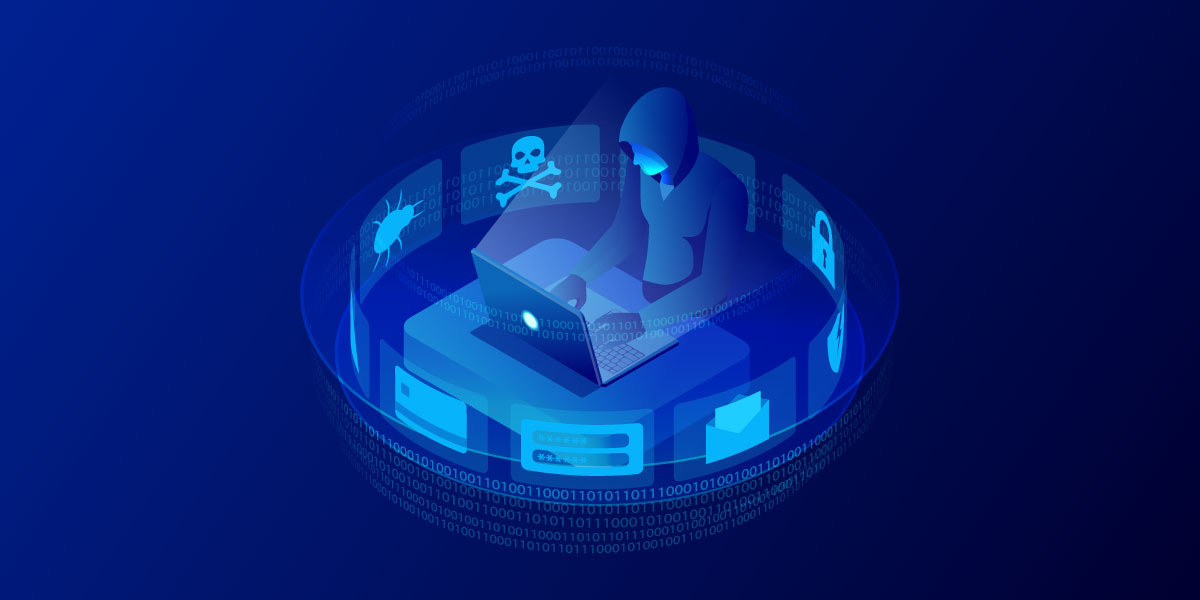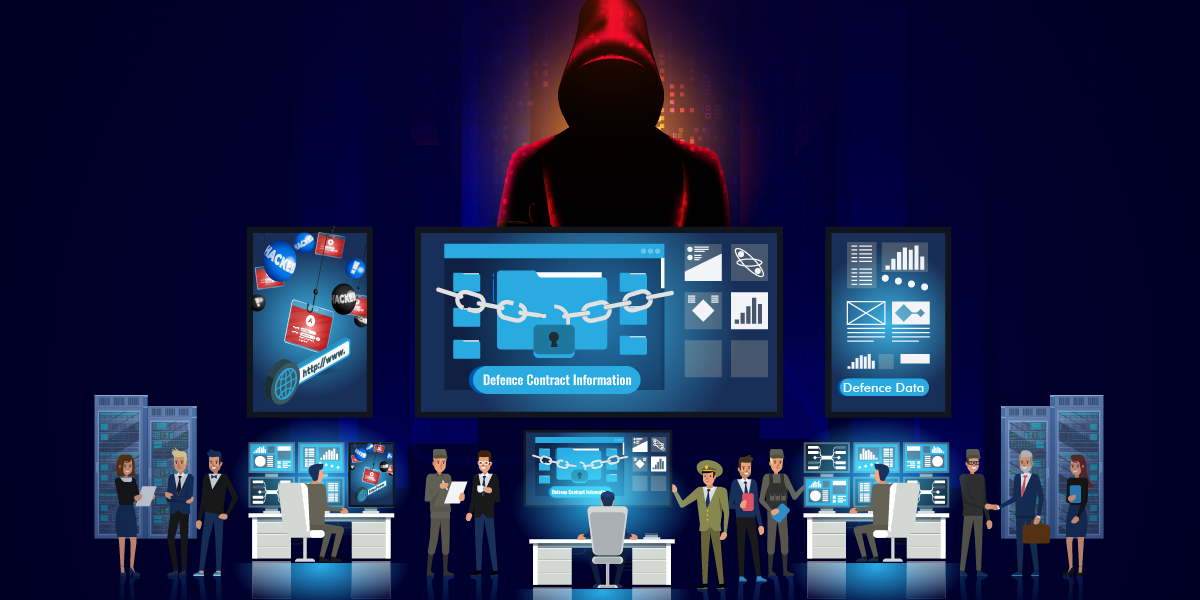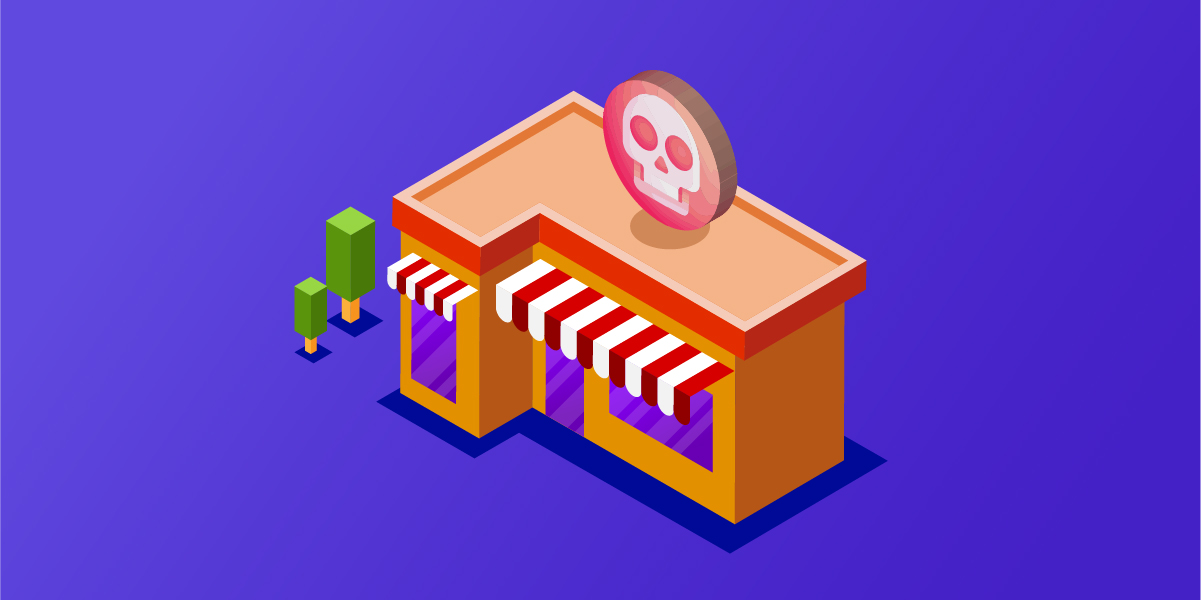We all love to live in an ideal world where everything is safe and secure; but hackers try to stay a step ahead with ever-evolving methods and target to steal valuable personal data. Our information online is subject to various risks. Online Scams are simply different types of Internet based frauds. They occur from various ways like phishing emails, fake antivirus scams, online shopping scams, impersonation on social media, job offer scams, economic scams like ‘make money fast’ and scareware. So what is at risk? Almost all scams target our money – Credit card information, identity information like our date of birth, address and user IDs/passwords that we use to access different online accounts.
The eventual perpetrators usually sit in pockets of the world where justice is hard won or difficult to reach. Many times, they simply go undetected. Buying an Online Antivirus like K7 Total Security always shields your financial data and personal information from unauthorized access and malicious software. While attacking tactics and tools vary, defending your computer and data is all about getting the best antivirus software that is right for your usage pattern.
Here are a few Online Scams that you should be careful of:
Online Shopping Scams:
According to Better Business Bureau’s Scam Tracker Risk Report, the median dollar loss due to online scams rose to $160 in 2019 from $152 in 2018. The report also further states that online purchase scams formed more that 24.3 percent of all scams that were reported in 2019.
A majority of these scams occur exactly at the time of making payment. Online Purchases of clothing, jewelry and apparels have high exposure to online scams and it tops the list with 31.2 % exposure and 91.3 % susceptibility. Shopping scammers simply rip off unsuspecting shoppers using the anonymous nature of internet. The most recent version of an online shopping scam is the use of Social Media platforms to set up a bogus store. The usually sell fake clothing brands or jewelry, and disappear after a few sales. The best way to check on them is to Google for reviews about the store before making a purchase.
The best antivirus software comes with a whole range of protection tools with capabilities to alert you as soon as you enter a malicious website or link. However, research well, before you buy an Antivirus Software
COVID 19 Online Scams:
The pandemic has also led to an online ambush. With the world going online to avoid contact, it gives scammers more room to access valuable personal information.
Scammers either email or call directly asking for confirmation on your bank account number, address and other details and talk about your health insurance policy and a possible upgrade, which would include reimbursement for COVID-19 treatments. Before sharing any valuable information, ensure you double check on this with your health insurance company.
Emails and calls on cures and offers from fake websites, social media shopping sites on essential COVID-19 products like masks, hand-sanitizers, and test kits and these products never arrive.
Websites and emails that impersonate government authorities offering COVID-19 information that actually skim data and information from your device.
The most notorious form of Online Scam is where the online fraudster sends out phishing (the practice of sending fraudulent emails that would induce the reader to divulge sensitive or personal data) emails. The content of these mails read similar to the routine mails that may come from your bank, or a website that you usually visit. For example, an online shopping store, a promotional email from the bank you have an account, or a cloud storage company offering you a huge discount on data storage.
Here are a few types of phishing attacks:
Spear Phishing: While many phishing emails target almost everyone, spear phishing emails target high profile business executives or public personas; basically lucrative targets. These emails are drafted after a good research on the target profile and the emails read very professional.
Business Email Compromise: These are emails sent by scammers that look like the ones being sent from a colleague, business associate, partner, vendor, contractor, or from a company associated with the target company very closely. They request for urgent action, either for the purchase of equipment or for a pending payment. Here, the hacker knows that it is an unsuspecting piece of information that can pass off as an urgent business matter. These kinds of emails contribute to considerable cybercrime related business losses.
Pharming: A technically sophisticated form of phishing, it is also known as DNS (Domain Name System) poisoning that involves the Internet’s DNS. The hacker is able to reroute legitimate organic traffic to a spoofed webpage to capture data and valuable information without the user’s knowledge.
Many Antivirus software programs offer anti-phishing defenses, but ensure you check on this before you opt for them. So, buying an Antivirus Online protects you against viruses, spyware and malicious attempts. However, warding off a phishing attempt depends so much on your ability to call out a liar!
Ensure you download the best Antivirus software and keep the security of your computer and data intact as these imposters have different ways entering your Inbox and spamming you with emails and messages.
Social Media Scams: We start our days with a morning peek into our social media accounts. As an active part of our everyday life, the tremendous success and popularity of social media comes with a dark side as well. As social beings, we all tend to go the popular way or where the hype is on. And hackers gear-up when the crowd gathers.
- Blind clicking of shortened URL’s – These shortened URL’s can be seen everywhere on Twitter. Once you click on these sites, it installs all sorts of malware. Real time protection like K7 Total Security works effectively against viruses and malwares and helps you enjoy your time on social media with confidence.
- Friend Imposters – Social media sites are also vulnerable to identity theft and you can get a message from a friend saying he needs money to be transferred to an account or number as he is stranded somewhere. This could just be your friend’s malware infected computer which grabs all contacts on the friends list and sends them a message. So call your friend first before you even click anything on that message.
Fake Websites
These websites cleverly resemble a legitimate e-commerce or online shopping website. Everything about their images, color schema and logo look almost like the exact same copy. So watch out before you make any transaction on them. Check the legitimacy of the URL. If you see any letters out of place or a wrong domain extension that’s a warning sign to check again. Organizations in serious businesses like banks, definitely have a legitimate SSL/TLS layer and you can see their website URLs start with HTTPS and not with HTTP, as this prevents communication being intercepted between the user and the organization. Also, never trust a HTTP site with your private data.
Keeping your browsing experience safe is all about protecting yourself at every place you visit in the online world and that can be as easy as buying a good Antivirus Online. Secure your personal data, while getting timely alerts from malicious websites and applications.
Staying updated on technology goes a long way in arming you with the knowledge required to understand what could be the best antivirus program for your browsing habits and internet usage. Besides, this would improve your intuition about suspicious mails and messages, eventually making your online world more secure.











